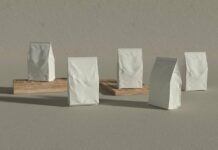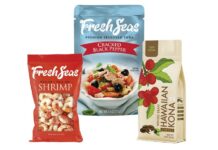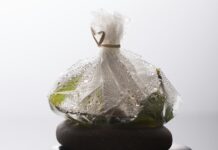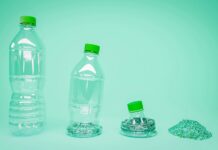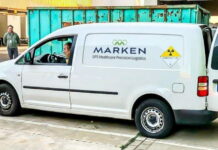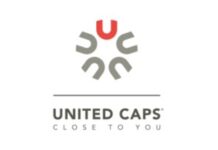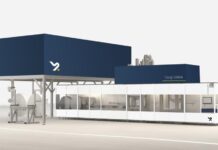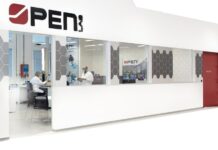Environmental factors and sustainability continue to dominate the efforts to develop new types of plastic packaging, as well as, in some cases, alternatives to plastic packaging. Here are just a few recent examples.
Mondi Group, the Austria-based paper and plastic packaging giant, has created three sustainable packaging products for a new range of vegan products from Norwegian food manufacturer Orkla ASA. The branded consumer goods company worked closely with Mondi to create sustainable, high-performance packaging for the Swedish launch of its Frankful® plant-based Tex Mex range –– soft tortilla wraps, tortilla crisps and taco spices.
 For Orkla’s soft tortillas, the firm chose to use Mondi’s BarrierPack Recyclable, which uses a high-barrier, lightweight, mono-material polyethylene and a reclose tape to keep the food fresh in its original packaging and prevent waste. It packaged its tortilla chips in Mondi’s metal-free high-barrier laminate, which is totally recyclable due to the fact it eliminates the need for a metalized layer while retaining crispness and avoiding grease leakage. And Orkla’s taco spice mix is packaged in Mondi’s paper-based laminate, created from FSC™ certified paper and a film made from renewable resources.
For Orkla’s soft tortillas, the firm chose to use Mondi’s BarrierPack Recyclable, which uses a high-barrier, lightweight, mono-material polyethylene and a reclose tape to keep the food fresh in its original packaging and prevent waste. It packaged its tortilla chips in Mondi’s metal-free high-barrier laminate, which is totally recyclable due to the fact it eliminates the need for a metalized layer while retaining crispness and avoiding grease leakage. And Orkla’s taco spice mix is packaged in Mondi’s paper-based laminate, created from FSC™ certified paper and a film made from renewable resources.
Royal DSM, meanwhile, has launched sustainable, plant-based line of packaging resins it is calling its Decovery® range. The Dutch giant says these new resins will allow packaging producers to reduce their carbon footprint. It claims its Decovery portfolio –– designed for the creation of adhesives, primers, inks and topcoats –– is perfectly suited for the creation of high-quality coating resins that meet the environmental demands of the packaging markets. They contain zero-to-low volatile organic compounds (VOCs), DSM says, yet can match or even exceed the performance of starch-based alternatives. All of these resins are made from plant-based resources, such as bark and beans, which are sustainably sourced and don’t compete with the food chain.

The first such resin is the lineup is Decovery® SP-6400 XP, a low-NaOH alkali-soluble acrylic copolymer dispersion with high clarity and flexibility. DSM created it especially for adhesive application, such as removeable paper labels for bottles as well as domestic adhesives. It has a lower carbon footprint than oil-based alternatives, is highly flexible, and can adhere to a wide range of substrates.
Milliken Chemical created its new Hyperform® HPN® 909ei high-performance additive with the aim of helping packaging thermoformers achieve better end results when processing polypropylene (PP) homopolymers. That type of PP homopolymer is typically used to thermoform drink cups and lids, food packaging, and trays. This formulation delivers an excellent balance of physical properties and superb aesthetics –– all enabled through cleaner chemistry.
Traditional nucleating agents typically require customers to sacrifice impact to gain greater stiffness. This additive, however, delivers better stiffness (flexural modulus) while maintaining good impact performance. It also provides isotropic shrinkage (similar shrinkage in both directions, thereby reducing warpage) and a higher heat-deflection temperature.
Additionally, Hyperform® HPN® 909ei also helps to minimize migration, especially in food-contact applications. This new grade of Hyperform has one Specific Migration Limit (SML) less than the previous generation product, a fact that is especially vital for safety reassurance in the European Union. A lower number of SMLs means there is one less substance that must be monitored and tested for, reducing customers’ compliance burden.
Sabic, the massive Saudi Arabian chemicals and plastics producer, said that German skin-care products maker Beiersdorf AG has agreed to use certified renewable polypropylene (PP) from Sabic’sTruCircle™ portfolio of bio-based materials in its cosmetics packaging. Beiersdorf will introduce the new packaging products in the market this year, replacing fossil-based virgin PP. Michael Becker, head of global packaging development at Beiersdorf, stated: “We are proud to be the first in our mass market segment to use polypropylene made from renewable, plant-based raw materials as a packaging material for our cosmetic products.”
Jabil Inc., a manufacturing and supply-chain management behemoth with 260,000 employees across 100 locations in 30 countries, is throwing its considerable heft behind the innovative products developed by Ecologic Brands Inc. Manteca, California-based Ecologic produces sustainable packaging specializing in paper bottle and paper-based packaging solutions.
Jabil, based in St. Petersburg, Florida, and a huge plastics processor in its own right, acquired Ecologic and is adding it to its Jabil Packaging Solutions division. Ecologic’s paper bottles do contain a lightweight inner plastic liner that is non-laminated, mono-material and entirely recyclable. The firm’s patented eco.bottle® is made with 60 percent less plastic than rigid plastic bottles, with an outer fiber shell made from 100 percent recycled cardboard and old newspaper that meets ASTM D 6868 composting standards.

It’s clear that brand owners in the packaging sector have never been more eco-conscious, and that this trend is taking many forms –– from sourcing more sustainable raw materials, to designing products that are more recyclable or compostable, using biopolymers, or finding ways to reduce overall material use.
These developments and much more will be on display at CHINAPLAS 2021 in Shenzhen during April 13-16. Come to see first-hand the materials, machinery and technologies that are helping to enable a more sustainable packaging future.
About CHINAPLAS 2021
CHINAPLAS 2021 is organized by Adsale Exhibition Services Ltd., Beijing Yazhan Exhibition Services Ltd., Adsale Exhibition Services (Shanghai) Ltd., Adsale Exhibition Services Ltd. (Shenzhen) Ltd. and co-organized by China National Light Industry Council – China Plastics Processing Industry Association, China Plastics Machinery Industry Association, Guangdong Plastics Industry Association, Shenzhen Polymer Industry Association and Messe Düsseldorf China Ltd. The event is also supported by various plastics and rubber associations in China and abroad.
First introduced in 1983, CHINAPLAS has been approved by UFI (The Global Association of the Exhibition Industry) since 2006. CHINAPLAS is exclusively sponsored by the Europe’s Association for Plastics and Rubber Machinery Manufacturers (EUROMAP) in China for the 31st time. CHINAPLAS is currently Asia’s leading plastics and rubber trade fair.




